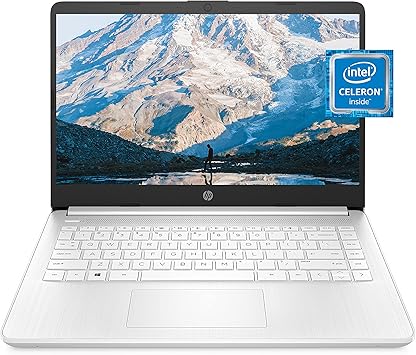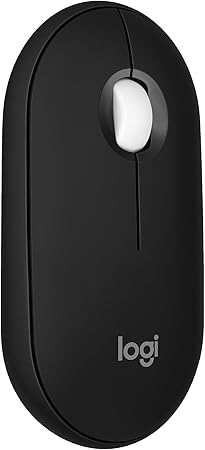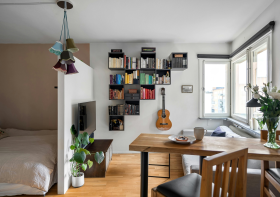Back-to-School Tech Upgrades That Make Your Life Easier

Tech, especially back-to-school tech, isn’t just nice to have—it’s the difference between survival and sobbing in the campus bathroom. So if you’re heading back to class—high school, college, grad school, or “I’m-just-here-to-pass-statistics” school—this guide is for you.
Let’s upgrade your tech & gadget game so you can look like you actually have your life together (even if you’re eating Hot Cheetos for dinner and Googling “how many absences until they fail me?” at 2 a.m.).
- Best Laptops & Tablets by Budget
- Wireless Accessories You Won’t Lose in the First Week
- Note-Taking & Organization Apps Worth the Download
- Stay Focused, Stay Ahead: Must-Have Productivity Tools for Back-to-School Success
- Chargers, Power Banks, and Stuff That Won’t Die Mid-Lecture
- Dorm-Friendly Back-to-School Desk Setups That Feel a Little Fancy
- Back-to-School Bonus Round: Glow-Up Extras You Don’t Need but Definitely Want
The Back-to-School Tech Starter Pack Every Student Needs
Because tech that just looks cool but dies every five minutes? Absolutely not. Let’s build your digital dream team.
Best Laptops & Tablets by Budget
No, you don’t need a $3,000 laptop that doubles as a rocket launcher. But you do need something reliable enough to get through 1,200 browser tabs, a dozen Google Docs, and your inevitable dive into conspiracy theory TikTok.
Budget-Friendly Back-to-School Laptops
Solid performance for under $500. Handles papers, Zoom, and multiple tabs without sounding like it’s about to explode.
Specs: 14″ HD display, Intel Celeron N4020, 4 GB RAM, 64 GB storage, Windows 11 Home (includes 1-year Office 365)
Why it’s a hit: Ranked #2 in Amazon’s best-sellers → dependable for basic homework, web research, and Zoom calls
Specs: 15.6″ FHD display, AMD Ryzen 3 7320U, 8 GB RAM, 128 GB NVMe SSD, Windows 11 Home in S Mode
Why it stands out: Featured in Amazon's “budget laptop” category with high multi‑tab and multitasking performance thanks to Ryzen 3 + 8 GB RAM
Specs: 15.6″ FHD display, Intel Core i3 or i5 (10th–13th gen), 8–16 GB RAM, 256 GB+ SSD, Windows 11
Why it’s reliable: The Inspiron 15 3000 is Dell’s entry-level workhorse line—well-suited for students needing more speed, Zoom clarity, and storage .
Quick Snapshot
| Laptop | CPU | RAM | Storage | Ideal Use Case |
| HP 14″ Celeron N4020 | Intel Celeron N4020 | 4 GB | 64 GB eMMC | Basic papers, light multitasking, casual Zoom |
| Acer Aspire 3 Ryzen 3 | Ryzen 3 7320U | 8 GB | 128 GB NVMe | Multiple tabs, Zoom, office apps—great value for power |
| Dell Inspiron 15 3000 (i3/i5) | Intel i3 or i5 | 8–16 GB | 256 GB+ SSD | Heavier multitasking, video calls, larger storage, longer lifespan |
Which One Should You Pick?
- Tightest budget? Choose the HP—it’s solid for basic school tasks and Zoom.
- Best balance of performance and price? The Acer Aspire 3 with Ryzen 3 and 8 GB RAM is ideal for multitasking and app usage.
- Need more power/storage and smoother Zoom experiences? Go for the Dell Inspiron with Intel Core i3/i5.
Mid-Priced Productivity Laptop Champs
Laptops that are lightweight, powerful, and make you feel like a digital minimalist genius.
Specs: 14″ FHD display, Intel Core i3‑1315U, 8 GB RAM, 256 GB SSD, Wi‑Fi 6, Windows 11
Why it’s ideal: Lightweight, compact, and capable—cruises through Zoom, multitabs, and essays with ease. Often praised in Walmart/Amazon listings for its value.
Performance: Core i3 handles everyday workflows smoothly; the 256 GB SSD offers quick boot times and storage space. Superb balance of portability and performance.
Specs: 15.6″ FHD display, Intel Core i3‑N305, 8 GB RAM, 512 GB SSD, Windows 11
Why it’s popular: Offers a bigger screen for multitasking without a premium price. 512 GB SSD ensures you have room for files, apps, and school projects.
Performance: Great for managing multiple browser tabs, streaming lectures, and writing papers while still staying light on portability.
Specs: 14″ display, likely entry-level Core/Celeron, 8 GB RAM, 256 GB SSD
Why it’s cool: Sleek and stylish—ideal for students wanting something that stands out. Despite its minimalist build, it's great for Zoom calls and school tasks.
Performance: Well-rounded everyday performer: fast SSD, sufficient RAM, and light design make it an easy pick.
Choosing the Right One
| Use Case | Your Pick | Why It Works |
| Ultimate portability | ASUS Vivobook 14″ | Compact, light, and fast—ideal for carrying across campus. |
| Best screen real estate | Lenovo Slim 3i 15.6″ | Larger display for research and essay writing with plenty of storage. |
| Style-conscious & light | Rose‑Gold 14″ Laptop | Lightweight, SSD speed, a standout design for creative students. |
Which One Should You Add to Your Back-To-School List?
Let’s break it down based on your style, workload, and minimalist mindset:
Go with the ASUS Vivobook 14″ if…
You want a no-fuss, highly portable laptop that handles the essentials with speed and clarity. Perfect for students who live off Google Docs, Zoom classes, and a few well-curated tabs. It’s sleek, snappy, and doesn’t overcomplicate things—just like a digital minimalist prefers.
Best for: On-the-go students, note-takers, minimalist multitaskers
Not for: Anyone who wants a bigger display or a numeric keypad
Pick the Lenovo IdeaPad Slim 3i if…
You’re a minimalist—but with files. This one has more storage and screen space, ideal if you save lots of docs or want to avoid external drives. It’s still sleek but adds a bit more functionality for the student who wants both clean design and long-term flexibility.
Best for: Writers, researchers, students with heavier digital coursework
Not for: Ultra-minimalists who want a tiny, featherweight machine
Choose the 14″ Rose-Gold Laptop if…
You want style and simplicity without dropping major cash. It’s a basic but beautiful machine—great for web-based tools, Zoom calls, and lightweight schoolwork. A solid choice for the budget-conscious student who loves a little aesthetic flair in their tech.
Best for: Budget minimalists, creatives, or those who want something unique
Not for: Users running demanding apps or heavy multitasking needs
Splurge-Worthy Laptops
Sleek, fast, and future-proof. This is the laptop that whispers, “I’ve already color-coded my life.”
Why it shines: This is Apple’s most efficient, fanless powerhouse to date. The M4 chip brings incredible speed for multitasking, video calls, and creative work without sacrificing battery life. It supports dual external displays now (finally!), and it's one of the most lightweight laptops in its class.
Best for: Students who need all-day performance on a single charge, want a sleek and quiet laptop that fits in any bag, and work across web apps, writing, video meetings, and occasional light editing.
Consider: Limited ports (just 2 Thunderbolt/USB-C), and if you’re heavy into creative pro software or need a larger screen for multitasking, the 15" model or MacBook Pro may be better.
Why it shines: Same killer M4 performance but with a bigger screen and a richer audio system. Perfect for side-by-side document work, media creation, or immersive studying. It remains incredibly thin and light even with the larger display, and the extra GPU core gives it more creative horsepower.
Best for: Students who want a bigger display for multitasking, presentations, or video watching without carrying around a bulky laptop. Also great for light creatives, photo editors, and those who attend Zoom-heavy classes.
Consider: Still limited in ports, and may feel too large for ultra-minimalist students who prioritize portability over screen size. Same base storage (256 GB) as the 13", so consider upgrading if you're file-heavy.
Why it stands out: A top Windows alternative to MacBook Air—featuring an elegant aluminum chassis, vibrant display, compact build (~2.6 lb), and snappy performance with latest Intel i7 + ample RAM/storage .
Best for: students wanting premium Windows experience, lightweight yet powerful.
Consider: Webcam and port options are average; not built for DIY upgrades.
Why it fits: Combines sleek Surface design, excellent PixelSense touch display, long battery life (~18 hrs), and solid performance ideal for academic work .
Best for: stylus/drawing support, touchscreen flexibility, minimalist design lovers.
Consider: Windows-only, limited ports.
Why These Are Worth the Extra Spend
- Longevity & performance: M4 and i7/Evo-class Intel ensure years of fast operation. Apple’s M-series also get extended software support
- Build quality & design: All three feature premium aluminum designs that feel elegant and stay durable across years.
- Battery life: Each offers impressive all-day usage (~15–18 hrs), so you won’t scramble for chargers on campus.
- Resale value: MacBook and XPS lines maintain high second-hand value, offsetting the initial investment.
Making Your Choice
| Use-Case Focus | Ideal Pick | Why It Fits |
| Best performance + battery in a light package | MacBook Air M4 13″ | Top-tier CPU/GPU, ultra-light design, fanless, Sunday-long battery life |
| Need more screen space and audio power | MacBook Air M4 15″ | Larger workspace, stronger speakers, same impressive internals |
| Windows, power & portability | Dell XPS 13 | Slim aluminum chassis with high-end Intel power |
| Touchscreen/stylus versatility | Surface Laptop 5 | PixelSense display + sleek design; great for notes/drawing |
Bottom Line:
For a future-proof, powerful, and sleek machine, MacBook Air M4 is the best all-around back-to-school investment.
Prefer Windows? Go XPS 13 for elegance and power, or Surface Laptop 5 if touchscreen and stylus are top priorities.
Let me know if you’d like help comparing specs, accessories, or finding the best current deals!
Wireless Accessories You Won’t Lose in the First Week
Nothing humbles you faster than crawling under your desk for a rogue charging cable. These wireless gadgets keep your workspace clean and your sanity mostly intact.
Wireless Mouse:
Logitech Pebble M350
Quiet clicks, modern design, and no weird “double-click” issues mid-exam.
Bluetooth Keyboard:
Arteck Wireless Keyboard
This wireless keyboard will make you feel like a CEO—even if you’re just writing an essay on The Great Gatsby.
Earbuds with Noise Canceling Powers:
Soundcore by Anker Life P3
Blocks out loud roommates, your neighbor’s dog, and your existential dread. Also? Great sound.
Note-Taking & Organization Apps Worth the Download
Yes, you can use the Notes app—but there’s better stuff out there to keep your chaos semi-contained. Here’s a detailed breakdown of some of the most helpful note-taking and organization apps for students heading into the new school year. These aren’t just trendy apps—they’re back-to-school must-haves that can make studying, organizing, and even staying focused feel (almost) effortless:
Notion
What It Is:
Notion is an all-in-one digital workspace where you can take notes, build to-do lists, plan projects, create databases, and even track your habits. Think of it as your planner, notebook, calendar, and content hub—all rolled into one.
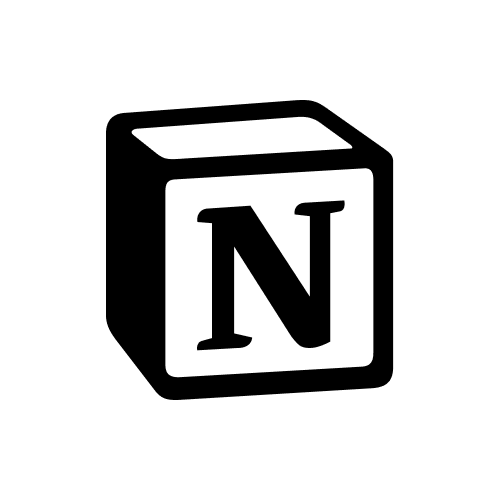
Why It’s Helpful:
Notion’s real power is in its customizability. Students can create class dashboards, organize semester notes, embed PDFs and images, track assignments, and sync everything across devices. You can even link pages together, add checklists, and use free templates to make life easier.
Best For:
- Students who love customizing their workflow
- Visual learners who like organizing by tables, toggles, and columns
- Multi-taskers juggling assignments, clubs, and goals
Pro Tip: Use the “template gallery” to find free pre-made student dashboards!
GoodNotes
What It Is:
GoodNotes is a powerful digital handwriting app made for iPads (and now Mac). It lets you write, annotate, draw, and highlight on virtual notebooks that feel almost like paper.

Why It’s Helpful:
It’s perfect for students who love the feel of handwriting but want the searchability and organization of digital notes. You can take class notes in real time, mark up slides, organize subjects into folders, and even convert handwritten notes into typed text. It’s a digital notebook without the paper clutter.
Best For:
- iPad users who prefer handwritten notes
- Students in math, science, or art classes that involve diagrams
- Anyone who wants the flexibility to sketch, write, and annotate freely
Pro Tip: Use GoodNotes to import lecture slides and annotate directly during class.
Microsoft OneNote
What It Is:
OneNote is a digital notebook developed by Microsoft that allows you to take organized notes across different subjects and sync them across your devices.
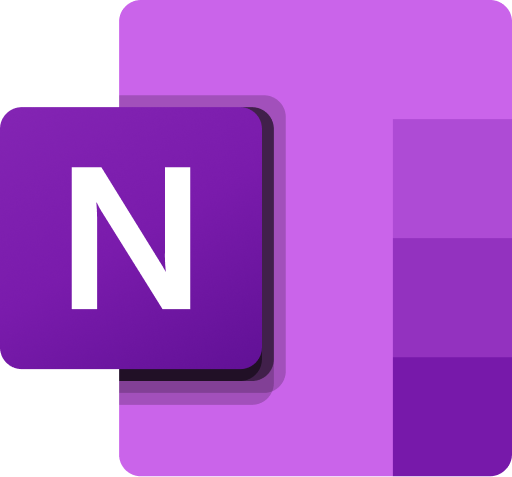
Why It’s Helpful:
Unlike many traditional apps, OneNote mimics the “binder” layout—making it easy to separate notes by notebooks, sections, and pages. It integrates with Microsoft Office tools (like Word and Outlook), which is perfect for students who already use Office 365. Bonus: it supports typed notes, handwriting, audio recordings, and file attachments.
Best For:
- Students using Windows laptops or Microsoft Office
- Learners who like visual separation and notebook-style structure
- Group project users—OneNote supports real-time collaboration
Pro Tip: You can record lectures within the app and take notes alongside the recording.
Todoist
What It Is:
Todoist is a sleek and intuitive task manager app that helps you keep track of assignments, due dates, and to-dos in one place.
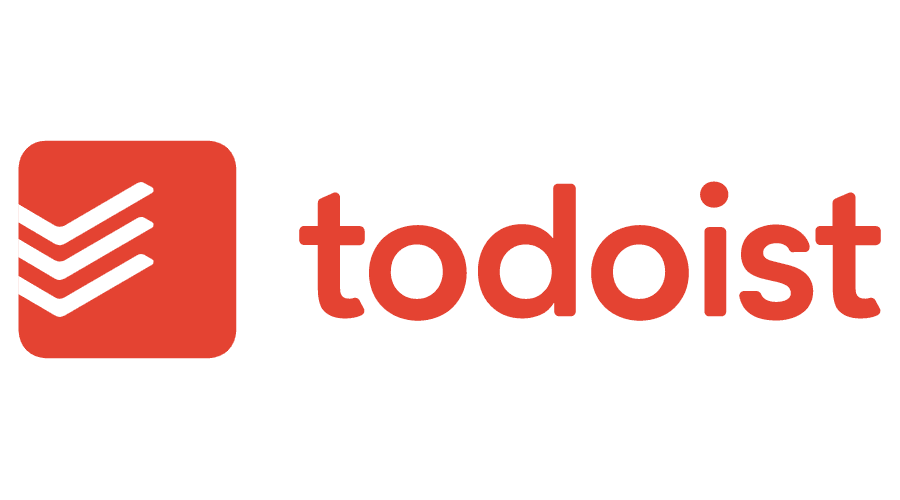
Why It’s Helpful:
It’s one of the simplest yet most powerful tools for managing your daily and weekly tasks. You can organize by project (class), set recurring due dates (like weekly quizzes), and even get reminder notifications. It’s perfect for breaking down big assignments into bite-sized checklists and seeing everything at a glance.
Best For:
- Students who feel overwhelmed by deadlines and need structure
- Planners who want a fast, clean way to track tasks
- Those who need gentle reminders without the clutter of full calendar apps
Pro Tip: Use natural language input—just type “Study bio chapter 2 tomorrow at 4pm” and it’ll schedule it for you.
Forest App
What It Is:
Forest is a focus timer app that helps you stay off your phone and in the zone. When you want to focus, you plant a virtual tree—and if you leave the app to scroll TikTok or check Instagram, your tree dies. (Yes, it’s as motivating as it sounds.)

Why It’s Helpful:
It gamifies productivity in the best way. Forest uses the Pomodoro technique (25 minutes on, 5 off), helping students build focus habits, reduce procrastination, and track how much real focus time they’re putting in. It also lets you see your “focus forest” grow over time—which can be oddly satisfying.
Best For:
- Students who struggle with distractions or phone addiction
- Anyone needing gentle, visual accountability
- Learners trying to build better study routines before midterms sneak up
Pro Tip: Enable “Deep Focus Mode” so even switching apps causes your tree to die. Brutal. Effective.
Bonus Suggestion: Combine These for Peak Back-to-School Productivity
- Stay distraction-free with Forest App
- Use Notion to organize your semester, syllabi, and big goals
- Take notes in GoodNotes or OneNote
- Track your daily to-dos with Todoist
Stay Focused, Stay Ahead: Must-Have Productivity Tools for Back-to-School Success
Heading back to school isn’t just about fresh notebooks and a new backpack anymore. With assignments piling up, distractions multiplying (looking at you, TikTok), and everyone juggling 500 tabs—literally and mentally—staying focused has become a full-time job.
That’s where smart productivity tools come in.
Whether you’re trying to block out noise, structure your study time, or finally get your scattered to-do list under control, the right gear can make or break your semester. These aren’t just gadgets—they’re focus-enhancing, stress-reducing, grade-saving tools that help students take back control of their time and energy.
From tech-forward notebooks to ADHD-friendly timers and distraction-busting headphones, here are the productivity powerhouses worth adding to your back-to-school shopping list. Your future self (and GPA) will thank you.
 Rotating Pomodoro Timer Cube (5/10/25/50 Min Presets)
Rotating Pomodoro Timer Cube (5/10/25/50 Min Presets)
Procrastination? Meet your match. This genius Pomodoro cube timer helps students lock into focused work sessions by using pre-set countdowns (5, 10, 25, or 50 minutes). Just flip the cube to start your session—no buttons, no setup, no excuses. With customizable volume and even a vibration mode, it’s especially helpful for students with ADHD, time blindness, or anyone who needs a tangible nudge to stay on task.
 Sony WH-CH720N Noise Canceling Wireless Headphones
Sony WH-CH720N Noise Canceling Wireless Headphones
Say goodbye to roommate drama and hallway noise. These Sony noise-canceling headphones are a student productivity powerhouse—wireless, lightweight, and built with dual noise-sensing technology that lets you focus on lectures, study playlists, or meditation without distractions. With up to 35 hours of battery life and built-in Alexa, they’re ideal for study sessions, Zoom classes, and long library days.
 Panda Planner Pro 2025 Undated Daily Planner
Panda Planner Pro 2025 Undated Daily Planner
Productivity meets mindfulness in this all-in-one daily planner that combines hourly scheduling, habit tracking, gratitude prompts, and to-do lists—all in one sleek format. The undated layout means you can start any time during the school year without wasting pages. It’s perfect for students juggling classes, deadlines, and goals—and a great way to keep your head clear and priorities straight.
 reMarkable 2 Paper Tablet Starter Bundle
reMarkable 2 Paper Tablet Starter Bundle
Ditch the notebooks (but keep the paper feel). The reMarkable 2 paper tablet lets you handwrite notes, annotate PDFs, sketch ideas, and organize everything digitally—without distractions like email or social media. It’s ultra-light, has two weeks of battery life, and comes with a pen that includes a built-in eraser. For students who love handwritten notes but want cloud-syncing and clutter-free organization, this is a game-changer.
 Rocketbook Core Reusable Smart Notebook (Letter Size)
Rocketbook Core Reusable Smart Notebook (Letter Size)
Why run out of pages when you can reuse one notebook all year? The Rocketbook Core combines handwritten note-taking with app-based cloud storage. Just write, scan with the Rocketbook app, and wipe clean with a damp cloth. It’s eco-friendly, cost-effective, and perfect for students who want to stay organized without lugging multiple notebooks around campus.
Chargers, Power Banks, and Stuff That Won’t Die Mid-Lecture
Because back-to-school tech that can’t survive 3 hours of “Advanced Bio 101” isn’t real tech. Here’s what you need:
Reliable Power Bank:
Anker Portable Charger (10,000mAh)
Small, powerful, and capable of giving your devices a mid-day life boost without making you carry a literal brick.
Multi-Device Charging Station:
Zobirez Charging Dock
Juice up your phone, AirPods, tablet, and roommate’s “forgotten” devices in one go.
Extra-Long Charging Cables:
Nylon Braided 10-Foot Charging Cable (3-Pack)
Because outlets are never where you actually need them. Never.
Dorm-Friendly Back-to-School Desk Setups That Feel a Little Fancy
Even if you’re typing your final at 1 a.m. surrounded by laundry piles and old ramen bowls, your desk can still look put together.
 Nulaxy Fully Aluminum Laptop Stand
Nulaxy Fully Aluminum Laptop Stand
Why It’s Dorm-Worthy:
In cramped dorm rooms, ergonomics often go out the window—this stand helps you reclaim some sanity. It improves airflow to prevent overheating during long study sessions, keeps your screen at eye level to prevent neck strain, and clears desk space for your notebooks and snacks. Bonus: the aluminum design looks way more expensive than it is.
Best For:
• Students who use their laptops daily for Zoom, papers, and Netflix
• Dorm setups where space and posture need a boost
• Minimalists who love function and form
 LEPOWER Bright LED Desk Lamp 900LM, 24W Touch Control with USB Ports
LEPOWER Bright LED Desk Lamp 900LM, 24W Touch Control with USB Ports
Why It’s Dorm-Worthy:
This is the Swiss Army knife of desk lamps. Whether you're cramming late at night or just vibing with ambient lighting, this lamp adjusts to your needs. The touch control is silent (great for late-night dorm use), the eye-caring light reduces strain, and the built-in USB ports save you from crawling behind furniture to charge your phone.
Best For:
• Students pulling late-night study marathons
• Shared dorms where lighting needs to be personalized and quiet
• Multi-taskers who need to charge and work at the same time
 YAMAZAKI home Desk Organizer, White
YAMAZAKI home Desk Organizer, White
Why It’s Dorm-Worthy:
Dorms = clutter magnets. This clean, vertical organizer helps corral the chaos—pens, notecards, earbuds, and chargers finally get a home. Its minimal footprint means it won't eat up precious desk space, and it blends seamlessly into any style (Scandi, boho, minimalist, you name it).
Best For:
• Students who thrive on organized chaos—or need help escaping it
• Dorms with small desks and zero drawer space
• Anyone trying to keep clutter out of Zoom camera view
 Gimars Upgrade Enlarge Silky Gel Memory Foam Keyboard Wrist Rest
Gimars Upgrade Enlarge Silky Gel Memory Foam Keyboard Wrist Rest
A two-piece ergonomic wrist rest set for keyboard and mouse use, filled with ultra-soft memory foam and wrapped in smooth, breathable fabric for comfort during long typing sessions.
Why It’s Dorm-Worthy:
Whether you're writing a paper or gaming after class, wrist fatigue is real. This set helps reduce pressure on your wrists, prevents numbness, and supports a neutral position while typing. It’s lightweight, stays in place, and won’t absorb weird smells (important in dorm life!).
Best For:
• Students typing papers, coding, or gaming for hours
• Dorm desks that don’t come with wrist-friendly furniture
• Anyone trying to avoid wrist pain or improve hand posture
Back-to-School Bonus Round: Glow-Up Extras You Don’t Need but Definitely Want
Because sometimes you just need a little something extra to make you feel like you’ve got this whole school thing handled.
 Mini Desktop Fan (Vornado Flippi)
Mini Desktop Fan (Vornado Flippi)
For staying cool at your desk when your dorm’s AC is a myth and your anxiety is not.
 Gaoye Stylish Blue Light Glasses Lightweight Frames 3 pack
Gaoye Stylish Blue Light Glasses Lightweight Frames 3 pack
Protect your eyes, look scholarly, and hide the fact that you haven’t slept properly since midterms.
The Tech Doesn’t Make You Smart—But It Can Make You Look (and Feel) Put Together
At the end of the day, your tech won’t do your homework for you (we wish), but it will make your life infinitely easier. And honestly? That’s worth its weight in gold.
This back-to-school tech roundup is all about balance: tools that make you look organized, feel capable, and survive a semester without sobbing into a charging cable.
And if you ever find yourself charger-less, two hours from home, with a paper due at midnight—well, at least you’ll have this blog to remind you: you’re not alone.
More Back-to-School Guides & Tips:
- Back-to-School Survival Guide for Parents
- Dorm Room Essentials You’ll Love for Style, Storage, and Sanity
- 10 Money-Saving Tips to Make Back-to-School Shopping Successful
Affiliate Disclosure
This blog contains affiliate links, which means I may earn a commission if you click on a link and make a purchase or subscribe to a service. As an affiliate marketer, I partner with various companies and receive compensation for promoting their products or services. This in no way affects the opinions or recommendations I give.
Adulting Like A Grown-Up is a participant in the Amazon Services LLC Associates Program, an affiliate advertising program designed to provide a means for sites to earn advertising fees by advertising and linking to Amazon.com.
